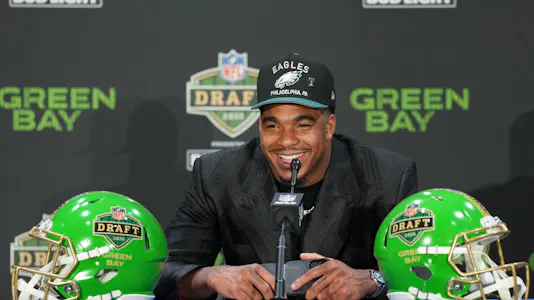Trump Whale Biggest Election Winner with $48M Profit on Polymarket

You couldn't bet on the outcome of the American election at our best sports betting sites, but there were ways to enter the market.
For one French bettor at Polymarket, Donald Trump's victory resulted in a payday of nearly $50 million dollars.
A mysterious trader known as the “French Trump Whale” became much richer after betting more than $30 million on Trump to win the Electoral College and the popular vote in the 2024 presidential election. Stefan Tompson, founder of the X (formerly Twitter) news account Visegrád 24, tracked the trader down to discover why they risked so much of their own money on Trump’s success.
Who is the French Trump Whale?
Introducing himself as Theo, the French trader and investor shared the extensive research that went into the decision. After analyzing all of the New York Times/Siena surveys since September and discovering that most polls are skewed to Harris’ advantage, Theo offered to pay a whopping $10,000 to anyone who could find a survey without any skew.
“In August, I started to realize that media outlets are making the same mistakes they made in 2016 and 2020, underestimating the Trump vote,” the trader said.
The Polymarket “whale” wanted to clarify that they were not trying to manipulate the election results but rather trying to make money.
“I’m not supporting Trump. I’m just observing that Trump has a 90% chance of winning these elections and a 65% chance of winning the popular vote. That’s why I bet on both, and that’s why I think he will win both.”
Whale bet on the shy Trump voter and polls being wrong
Theo discussed two key effects that came into play – the shy Trump vote effect and the neighborhood vote effect. The shy Trump voter phenomenon gained attention after polling discrepancies in the 2016 and 2020 elections, suggesting that Trump voters may underreport their support in polls to avoid judgment. While the polls measure people's voting intentions, prediction markets reflect bets made by real people with real money about who they believe the winner will be.
Theo used an example for North Carolina, noting that of the 1010 respondents sampled, 431 voted for Biden and 349 voted for Trump in the 2020 election. The trader then calculated the percentage by dividing these numbers by the 1010 respondents, revealing that 42.6% supported Biden and 34.5% went for Trump. However, the percentages displayed in the NYT polls did not add up.
“So first, what we can see is that the percentage here that they display is wrong. It’s fake. They display 42% and 40%. So that’s a very big difference. Why we did that? It’s because for people who are looking at these numbers, they don’t compute like I did. I’m probably the only one who computed it because people are seeing 42% and 40% and they say, ‘oh, you know what? It’s quite fair.’ They polled for only 2% more Biden voters,” Theo explained.
Doing the math
Theo found similar results this year, including a huge 9.3% skew to Harris's advantage in North Carolina. The results were also replicated across other states, including Michigan and Wisconsin.
“I encourage you, really, to go to the Siena website. Check the cross tabs. Make the work I did. And you will be astonished! I tell you that Trump will outperform the polls, especially these polls, by 4-5% minimum,” Theo said. “If he loses, I would accept that I was wrong in my analysis, but I really doubt about that.”
Theo collected about $48 million in profits after Trump secured the win on Wednesday, November 6. They made the bets via several accounts on the prediction market Polymarket, which took in over $3.7 billion in bets in the 2024 election. The election drew massive betting action worldwide, with UK-based Betfair also announcing a handle of around $322 million.







